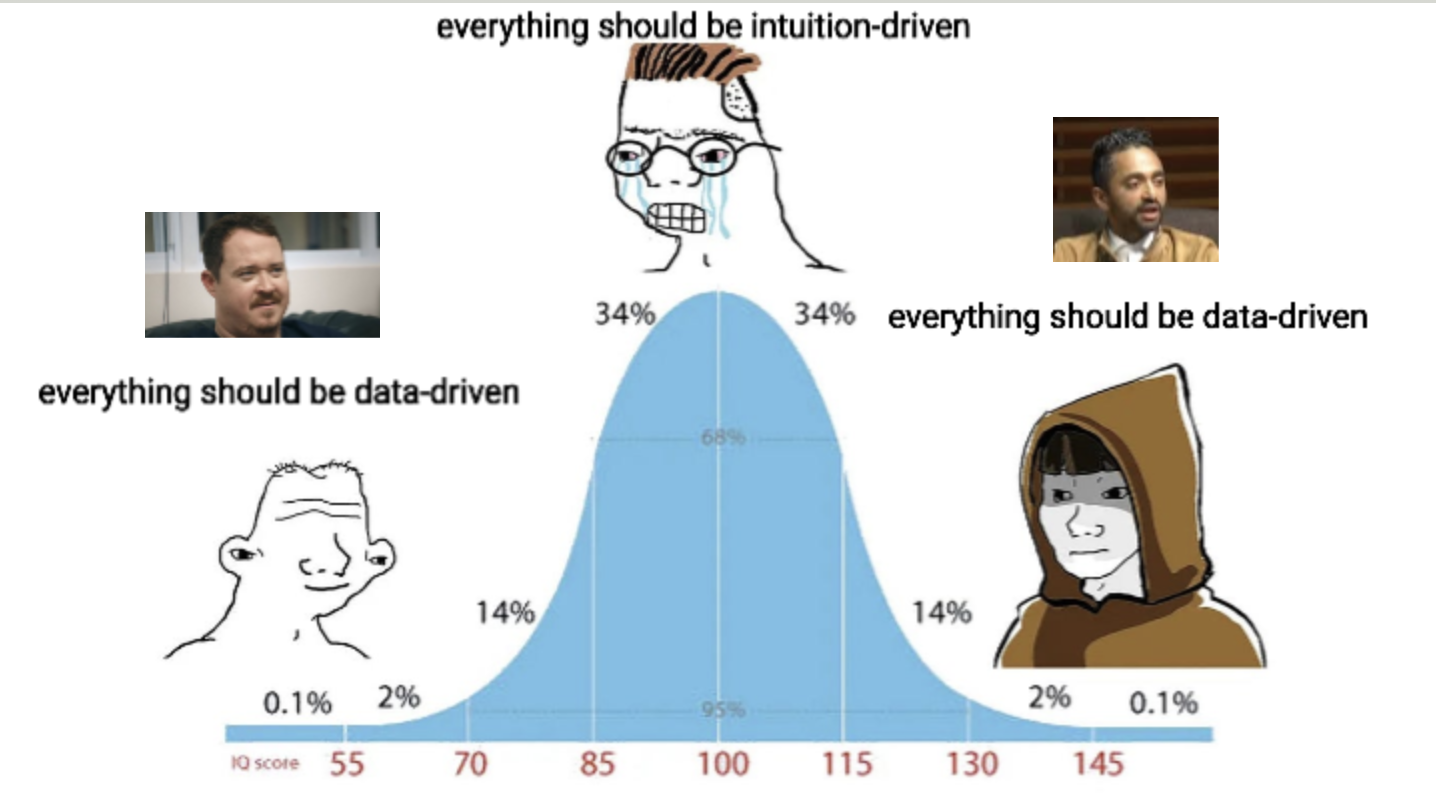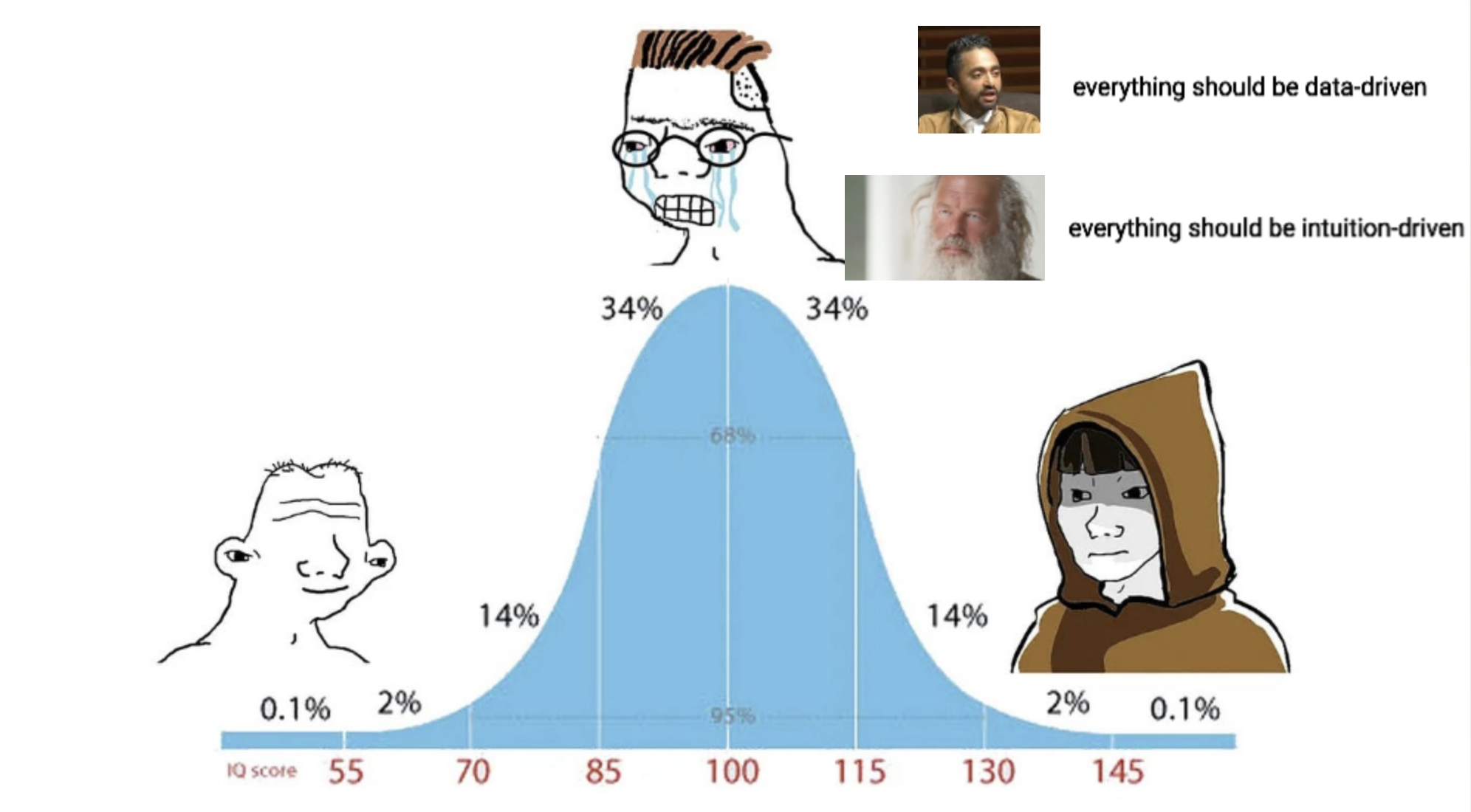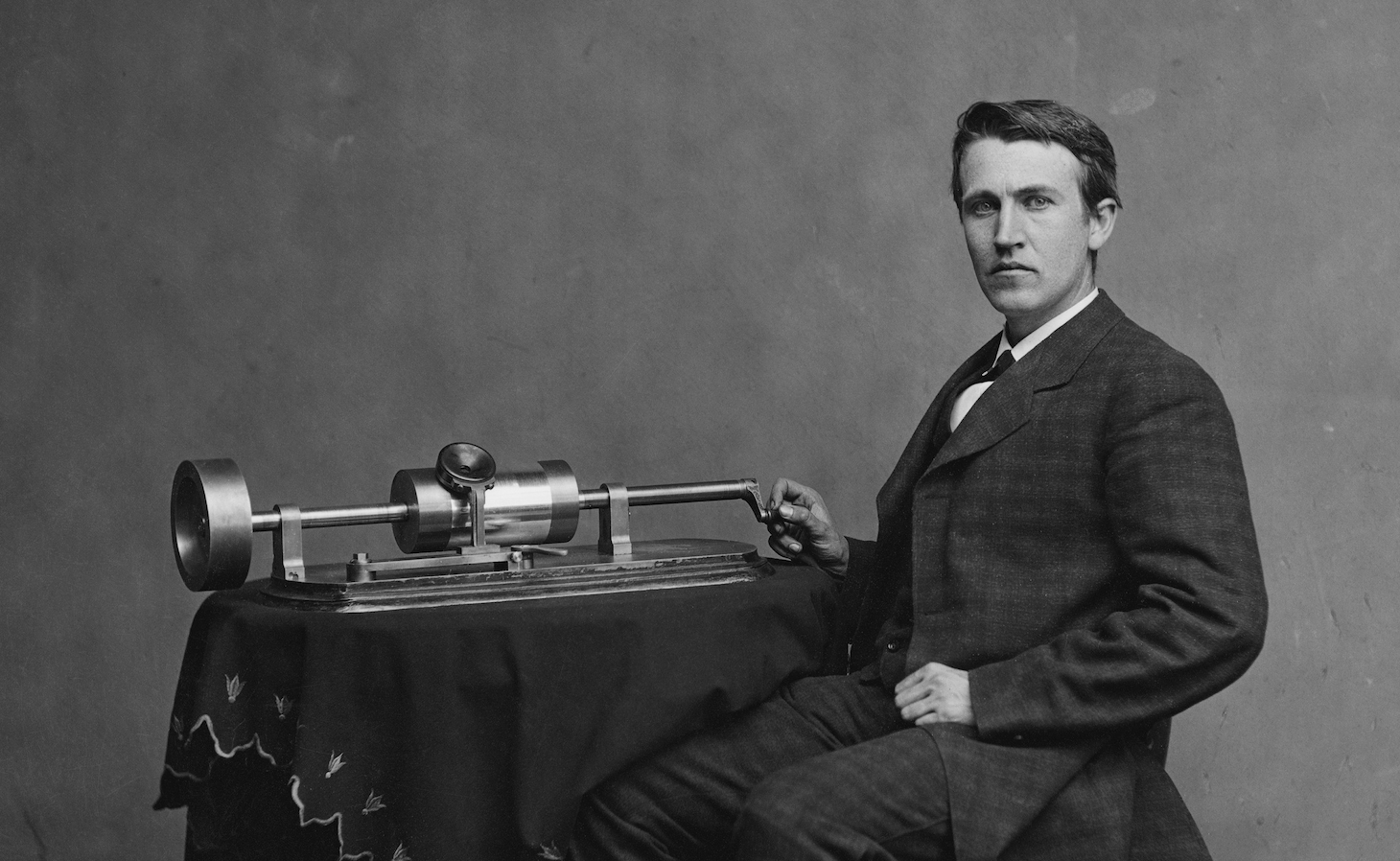I heard a Slavoj Žižek reel a while back talking about how wisdom is bad. Big brain people will find a way to logically justify anything. This lines up with Vitalik's recent post about "galaxy brain resistance"—using good arguments to rationalize anything. I would assume that is only possible if one of the premises is wrong, just like Hugh Akston prophets, leading to a contradiction. But if logically justifying anything is possible with stable premises, does that invalidate all logic?
Smart people can produce airtight arguments for opposite conclusions because logic is underdetermined without a feedback mechanism. Good reasoning can float freely unless something in the world penalizes it.

Chamath Palihapitiya makes the argument that data should drive decision making, like algorithmic and design decisions at Facebook. Any gut-feeling or intuition is BS.
Simultaneously, Rick Rubin makes a great argument for the opposite.

Who's right, Rick Rubin or Chamath? Jim Simons said "Trust the model" while Josh Kushner says his "deepest insecurity is that [he] has intuitions about things that [he] cannot explain." Both are right because their strategies actually work.
Nassim Taleb said he doesn't trust economists because there's no feedback mechanism. They make a ton of models and predictions, but those models are rarely tested in the real-world with real money. And they often predict twenty of the last two recessions with no penalty.
There are two classical ways to generate knowledge. Induction (like Francis Bacon) or deduction (like René Descartes). You could go out into the world, test random shit, observe what is going on, and constrain a hypothesis. You could also sit in an empty room in a French Chalet deep in the Quebec countryside (like me rn) and start with a simple axiom and build up, generating a hypothesis. No external knowledge needed.
Both models of reality are valid, but the closest approximation to the Platonic Reality may be a mix of the two. Chamath is an inducer while Rubin is a deducer. Induction fails when the available data is sparse, misleading, noisy, or lagging reality and deduction fails when your internal model is miscalibrated or self-deceptive.
In domains with tight feedback (financial markets, quantitative systems, early-stage startups, etc.), induction dominates. In domains with sparse or noisy feedback (music, aesthetics, venture capital, etc.), deduction and intuition dominate. Chamath and Rubin’s epistemologies are adaptations to the structure of their domain.
I think the induction vs. deduction debate is all noise; without a loss function, neither converges towards the truth. The only thing that matters is the feedback mechanism, or the loss function. In markets, P/L is loss. In startups, customer adoption is loss. ("Get the fucking money." - Chamath) In relationships, emotional feedback is loss. No one gives a fuck about your theory unless it works. Then everyone will call you a genius.
The space of possible world-models is infinite. Only an effective loss function collapses that space into something definite, it turns a random walk into a drift towards Reality. Wisdom isn't bad, but a bad loss function definitely is.
